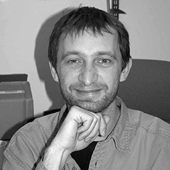| department of population ecology | ::: | institute | ::: | university | ::: |

|
dr hab. Mariusz Cichoń
cichon@eko.uj.edu.pl |
Dep. of Population Ecology Inst. of Environmental Sciences Jagiellonian University Gronostajowa 7, 30-387 Kraków Poland tel. + 48 12 664 52 01 fax + 48 12 664 69 12 |
||
home |
projects |
+ publications |
students |
Cichoń M., Chadzińska M., Książek A., Konarzewski M.
PROC ROY SOC LOND B
2002; 269: 1493-1497
Abstract:
This experiment was undertaken to study the trade-off between the cost of thermoregulation and immune function in laboratory mice. Two groups of mice were concurrently maintained at 23oC and 5oC for 16 days. A third group was first maintained at 23oC for 10 days and then transferred to 5oC for 6 days. On the 10th day after setting up the experiment all mice were immunised with sheep red blood cells. Thus, the cold-exposed mice had either experienced or not experienced cold stress prior to immunisation. Cold stress elicited a substantial increase in food intake accompanied by a significant reduction in food digestibility. Reduction of metabolically active internal organs (small intestines, heart, kidney and liver) was observed in cold-exposed mice. These findings reassured us that costs of increased thermoregulation caused by cold stress were substantial. The immune response of mice exposed to long lasting cold stress was significantly lower, but immune response was not affected in short-exposed mice. Differences in immune response between experimental groups accompanied changes in mass of immunocompetent organs (thymus and spleen). Our findings implicate that studies of trade-offs should account for the fact that resource re-allocation in response to an environmental challenge may not be immediate. In fact, resource reallocation may be postponed until the new environmental state becomes permanent or until an organism attains physiological adaptation to the current conditions. Keywords: immunocomptence, thermal stress, trade-offs, resource allocation.
d e s i g n e d b y P a w e ł K a p u s t a